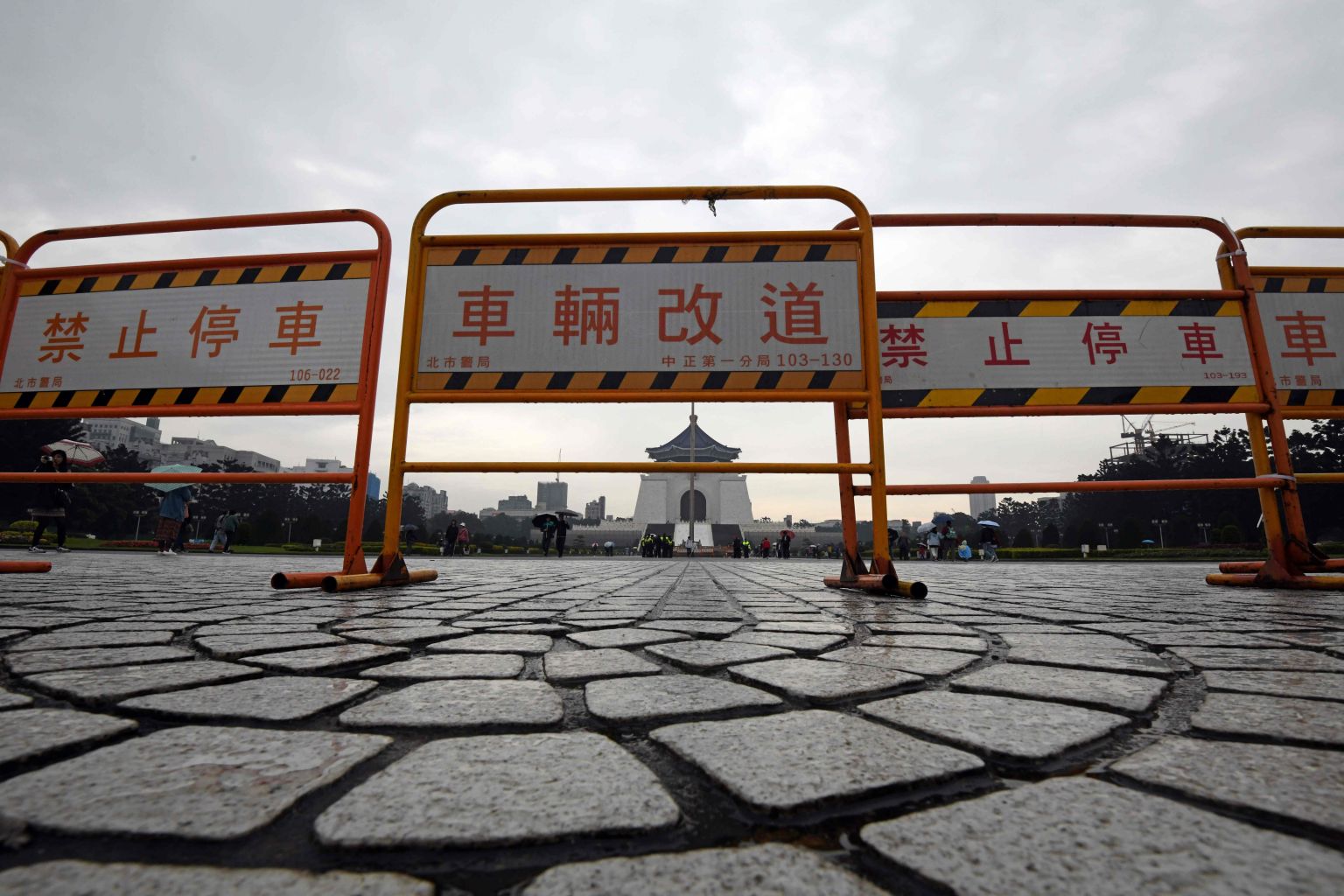Taiwan protesters deface former ruler Chiang Kai-shek's tomb on 'White Terror' anniversary
Sign up now: Get insights on Asia's fast-moving developments

Barricades are seen placed at entrance of the Chiang Kai-shek Memorial Hall in Taipei on Feb 28, 2018.
PHOTO: AFP
Follow topic:
TAIPEI (AFP) - Taiwanese protesters on Wednesday (Feb 28) splashed red paint on the tomb of former Nationalist ruler Chiang Kai-shek, urging the government to speed up a plan to erase symbols of the island's authoritarian past.
The protest came on the 71st anniversary of a Nationalist massacre estimated to have killed as many as 28,000, the prelude to a "White Terror" political purge that saw thousands executed.
Although Taiwan today is a full-fledged democracy, it was only in December last year (2017) that a bill was passed to tackle the legacy of injustices under Chiang.
It included a call for streets and schools with names commemorating the former ruler to be changed and his statues taken down.
Memorials to Chiang have been defaced over the years by those who vilify him as a dictator. Hundreds of his statues have already been moved to a lakeside park close to his mausoleum in Taoyuan City, now a tourist attraction.
About 10 protesters - including students and pro-independence activists - threw cans of paint on Chiang's coffin, saying the "imperial scale" of the mausoleum was a provocation.
"As long as Taiwan's resources are spent serving the spirits of Chiang and his son, as long as worship of the dictators has not disappeared, transitional justice can never truly be achieved," the group said in a statement.
Video footage showed them holding a white banner reading, "Abolish China authoritarian rule. Establish the Republic of Taiwan".
For many youths on the island, Chiang is also synonymous with the authoritarianism which wary Taiwanese now equate with mainland China.
Self-governing Taiwan has never formally declared independence from China, which still views the island as part of its territory.
The two sides split after a civil war in 1949, with Chiang leading his Kuomintang (Nationalist) army to Taiwan after being defeated by the Communists.
President Tsai Ing-wen on Wednesday reiterated her pledge to investigate injustices during the "White Terror" period. The government will scour archives and "let history speak for itself", she said.
The most prominent tribute to Chiang today is a memorial hall in the capital Taipei, which houses a 6.3m tall bronze statue of him.
But since the bill was passed last year, the cultural ministry has held workshops to discuss how the site should be transformed.
Some have suggested turning it into a park or a human rights museum. A politician recently proposed converting it to a marketplace, sparking uproar among Nationalist supporters.

